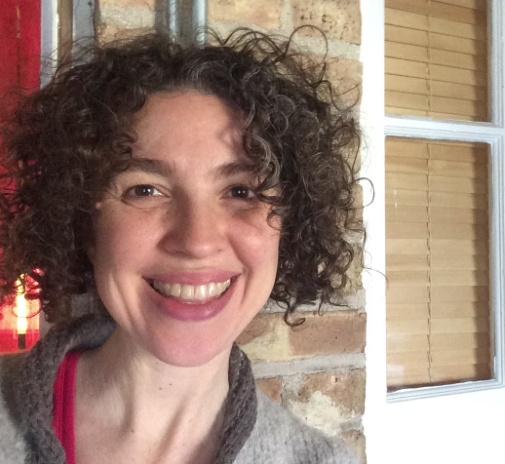July Tips for a Day of Rest
“What should we make for your unbirthday?” This question starts floating around in late summer, when we celebrate three half-birthdays in a row at our house. We have specific rules for unbirthdays: The Unbirthday Girl gets to choose a special dessert for the evening celebration — but a big cake is not allowed (although cupcakes are okay). It’s a quiet celebration, but one that our daughters would never let slip by.
We all have traditions and rituals in our homes. We recognize them at birthdays and special meals and in the changing of the seasons. But I’ve noticed that there are times in life when I desire some kind of habitual practice that represents what is vitally important in our lives — a kind of shorthand for our family values. It takes some work to build that into life in a way that really suits your own family culture, so it only makes sense to glean some ideas from the masters — and ancient religions have riches to share on this front.
A few years ago I found myself paging through a book entitled How to Run a Traditional Jewish Household. I had recently been reading another fascinating book from a Christian context about establishing family Sabbath traditions. Through that author’s work, I was really drawn to some of the rituals that have been passed down in the Jewish tradition. My own Christian church, although dearly beloved, wasn’t satisfying my thirst for this kind of meaningful ritual, so I knew that I needed to start doing some research on my own.
This kind of curiosity is something Martin and Sylvia’s family displays in this month’s Day of Rest story. They begin by recognizing that shape of their own Day of Rest is currently quite satisfactory. They aren’t sensing a need to solve a problem by adding or subtracting a new practice. The contentment they feel with their Day of Rest traditions doesn’t lead them to complacency, however — it leads them into exploration. What new ideas could they learn from their friends about rest and retreat? And how could they try a few of those out with their own family?
If you’re interested in exploring different traditions in your Day of Rest as Martin and Sylvia’s family does, here are a few tips to get you started.
Take stock of your values. Martin and Sylvia’s family doesn’t have a big agenda for their Day of Rest, but they are very clear about their purpose — to experience deep, restorative rest. Making sure that you’re clear on your own family’s values and purpose will help guide you as you sift through the variety of ideas that come your way.
Get curious. Martin and Sylvia have cultivated friendships with a variety of people, and this includes people with different religious traditions from theirs. Look at your own set of friends. Who in your circle might practice some kind of Sabbath or Day of Rest in their week? What might you want to ask them about it? Maybe you don’t have many friends with religious traditions that differ from yours. If so, this could be an opportunity to invite an acquaintance into deeper relationship. If you’re really at a loss for live humans to talk to, consider reading a few books or watching quality films that help to illustrate practices from another faith tradition.
Ask your questions. Martin and Sylvia’s family has a winsome way of allowing their curiosity to push them past the awkwardness that can sometimes come when asking a friend about something so personal as their religious traditions. But the fact is that true friends will always be glad to talk about their faith. Harness your own curiosity, invite a friend over for a meal, and ask them some of your deepest questions. You’ll be surprised at how interesting the conversation is and how close your friendship grows from this shared moment.
Try it on for size. Once you’ve collected a few ideas, talk together as a family about experimenting with these practices in your own Day of Rest. What rituals suit you? What doesn’t fit as well? Feel free to allow for a trial period of a few weeks to get into the groove with a new practice — or to decide to abandon it. Remember, the goal in this process is to find creative ways to live out your own family’s purpose in your Day of Rest, so you’re allowed to be discerning and keep only the things that work well. You’re the experts on your own family, and that means you can be the final authority — together.
Listen to the first free story HERE and read more about getting started with a Day of Rest.
Read the June Day of Rest tips HERE.
Not yet a subscriber? Try a free trial HERE.
About the Author

Ann Boyd
Ann is a writer, editor, homeschooling mother, voracious reader, full-fat baker, and musician. She lives in Chicago with her husband and two daughters and chronicles the journey at Boyds’ Nest News.

